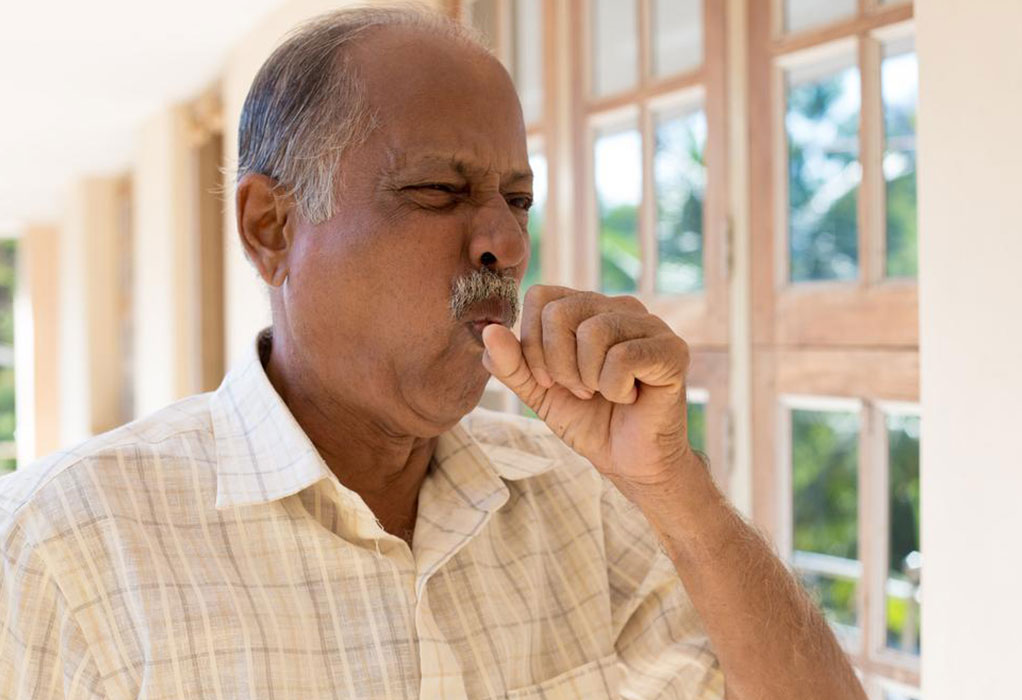Ultimate Guide to Managing Persistent Non-Productive Coughs: Causes, Treatments, and Preventive Measures
This comprehensive guide explores the causes of persistent dry coughs, including asthma, GERD, allergies, and viral infections. It provides detailed treatment strategies, lifestyle tips, and when to seek medical help, helping readers better understand and manage non-productive coughs effectively.

Ultimate Guide to Managing Persistent Non-Productive Coughs: Causes, Treatments, and Preventive Measures
Understanding the complexities of non-productive coughs is essential for effective management. A cough serves as a protective reflex mechanism designed to clear the airways of mucus, irritants, or foreign particles. While some coughs produce mucus and are categorized as productive, others are dry (non-productive), meaning they do not generate mucus. Persistent dry coughs can significantly impact daily life by disrupting sleep, reducing productivity, and causing discomfort. Recognizing the underlying causes is crucial for selecting appropriate treatments. This comprehensive guide dives into the various reasons behind non-productive coughs, their symptoms, and how to manage them effectively under medical supervision.
For effective relief from persistent dry coughs, understanding their connection to underlying health issues is vital. Here are detailed insights into causes, symptoms, and treatment options that can help you regain comfort and improve your quality of life.
Asthma and Dry Cough: A Closer Look
Asthma is a chronic respiratory condition characterized by airway inflammation, which results in swelling and constriction of the bronchial tubes. This condition can often present primarily with a dry cough, known as cough variant asthma (CVA). Along with the dry cough, individuals may experience wheezing, shortness of breath, and difficulty sleeping due to nighttime symptoms.
Long-term management of asthma-related dry cough typically involves inhaled corticosteroids like fluticasone (sold as Flovent) or budesonide (sold as Pulmicort). These medications work by reducing airway inflammation, thereby decreasing coughing episodes.
For immediate symptom relief during episodes, bronchodilators such as albuterol (Proventil, Ventolin) can be used to open up airways quickly and provide relief from cough and wheezing.
Gastroesophageal Reflux Disease (GERD) and Its Connection to Dry Coughs
Gastroesophageal reflux disease, commonly known as GERD, is a chronic condition where stomach acids flow back into the esophagus, leading to irritation and inflammation. This acid reflux can trigger a persistent dry cough, especially when the acid irritates the lining of the throat and airways.
Over-the-counter (OTC) medications such as omeprazole (Prilosec) and lansoprazole (Prevacid) are effective in reducing stomach acid production, thus alleviating the cough caused by acid reflux. These proton pump inhibitors (PPIs) help prevent acid from escaping into the esophagus.
In addition to medication, lifestyle modifications like avoiding spicy foods, eating smaller meals, and elevating the head while sleeping can significantly reduce GERD symptoms. Consulting a healthcare professional is essential for personalized treatment plans.
Postnasal Drip: An Often-overlooked Cause of Dry Cough
Postnasal drip refers to excess mucus dripping down the back of the throat, often caused by allergies, colds, or sinus infections. This mucus accumulation can irritate the nerve endings in the throat, leading to a persistent cough.
Effective home remedies include steam inhalation, taking hot showers, or using a saline nasal spray or neti pot to flush out excess mucus. These methods help soothe the irritated tissues and reduce coughing episodes.
Addressing underlying allergies with antihistamines or allergy shots can also diminish postnasal drip and associated coughs.
Viral Infections and Chronic Dry Coughs
Common viral illnesses like the cold or flu often initially cause dry coughs. While these symptoms typically resolve within days to a week, some individuals experience lingering dry coughs even after other symptoms disappear.
This post-viral cough occurs due to increased airway sensitivity or residual inflammation, which prolongs coughing.
Warm liquids such as herbal teas, throat lozenges, and honey can soothe the throat and reduce coughing frequency during recovery.
Other Less Typical Causes of a Non-Productive Cough
Environmental toxins, including pollutants like nitrogen oxides, sulfur dioxide, and airborne pollen, can provoke dry coughs. Using humidifiers in dry climates can add moisture to the air and reduce irritation.
Whooping cough (pertussis) is a highly contagious bacterial infection that causes severe, repetitive coughing fits followed by a characteristic 'whoop' sound. Vaccination is essential for prevention.
Pneumothorax, or collapsed lung, often results from trauma or certain underlying health issues, leading to sudden chest pain, difficulty breathing, and coughing. Immediate medical attention is critical in such cases.
Practical Strategies to Alleviate a Persistent Dry Cough
Sucking on throat lozenges or using over-the-counter cough suppressants such as dextromethorphan or guaifenesin (Robitussin) can help manage symptoms temporarily.
Natural remedies like honey with lemon in hot water can soothe the throat, reduce irritation, and calm persistent coughing.
Maintaining good hydration, avoiding irritants like cigarette smoke, and creating a humid environment can further prevent dry cough episodes.
Timely medical consultation and addressing the root causes of dry coughs are paramount for long-term health and symptom resolution. With the right diagnosis and treatment, most non-productive coughs can be effectively managed, improving quality of life and overall respiratory health.





